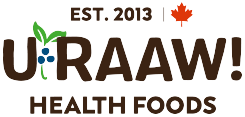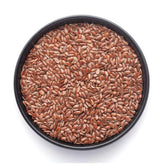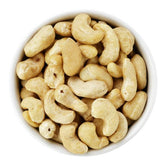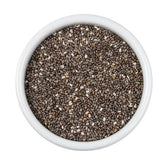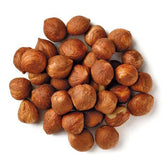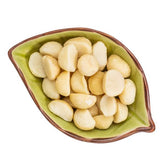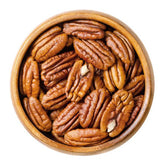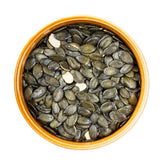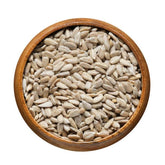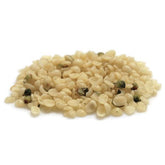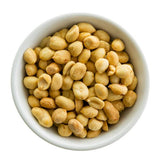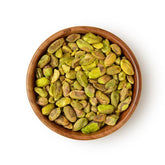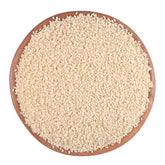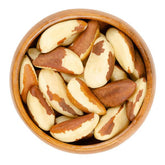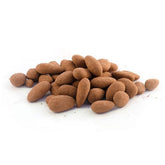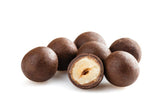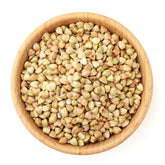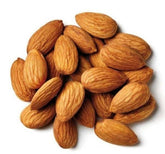Nuts & Seeds
Nuts and seeds are some of mother nature’s healthiest and most delicious snacks! All of the products we carry are certified organic, and non-GMO.
By ordering small batches (often directly from the grower) and always refrigerating all product, we can ensure the freshest, highest quality, and most flavourful nuts and seeds available.
If you are looking for a specific variety that is not listed on our website, please contact us as chances are we can get it!
For more information about nuts and seeds, please read below.
WHAT IS THE DIFFERENCE BETWEEN NUTS AND SEEDS?
Botanically speaking, nuts are generally “fruits” contained in a hard, inedible shell that doesn’t crack open naturally. Seeds are an edible small plant enclosed in a seed coat that naturally opens and they free themselves from the shell. Most nuts are seeds, but not all seeds are nuts. (Um...what?)
Furthermore, some nuts really aren’t nuts or seeds at all, like the peanut -- which is a legume, and the coconut and almond -- which are technically drupes.
Confused yet? You’re not being quizzed on this, so don’t worry. All you need to know is that they are packed full of nutrients and are deliciously crunchy.
POTENTIAL HEALTH BENEFITS OF NUTS AND SEEDS
- A handful of nuts and seeds can provide you with a host of nutrients including a powerful punch of vitamins, minerals, antioxidants, fiber, and fats, all which work together to promote good health. Nuts and seeds can provide some amazing health benefits:
- Fights free radicals. Nuts and seeds contain powerful antioxidants, including polyphenols, which neutralizes free radicals to prevent cell damage and decrease disease risk.
- May aid in weight loss. Even though nuts and seeds are considered a high-calorie food, research finds that eating nuts can promote weight loss rather than weight gain. One reason is that eating fats and fiber slows digestion and keeps you full. Another reason is that your body doesn’t absorb all the calories because a portion of the fat stays trapped within the nut’s fibrous wall during digestion.
- Lowers cholesterol and triglycerides: Nuts and seeds can lower triglyceride levels, total cholesterol, and LDL (“bad”) cholesterol. Furthermore, it increases HDL (“good”) cholesterol. This may be due to their high content of monounsaturated and polyunsaturated fatty acids. In addition, the fiber in nuts and seeds decreases fat absorption by binding to bile acids needed to digest fat. The fiber also ferments in the intestines that leads to the production of a specific short-chain fatty acid (SCFA) that acts on the liver to prevent the production of cholesterol.
- Beneficial for type 2 diabetes and metabolic syndrome. These conditions are strongly linked, as metabolic syndrome refers to a group of risk factors that may increase your risk of heart disease, stroke, and type 2 diabetes. Nuts and seeds are low in carbs and low in the glycemic index. So replacing high-carb foods with nuts and seeds can reduce blood sugar levels.
- Can reduce inflammation. Chronic, long-term inflammation can damage organs and increase disease risk. Research suggests that consumption of nuts can reduce inflammation and promote healthy aging. This can be due to the healthy mono- and polyunsaturated fats as well as the antioxidants found in nuts and seeds.
- Improve digestive health. The fiber found in nuts and seeds functions as prebiotics or food for healthy gut bacteria. Your gut bacteria ferment the fiber and turns it into short chain fatty acids (SCFAs) which improve gut health.
- May reduce risk of stroke and heart disease. As mentioned earlier consuming nuts are related to a beneficial cholesterol profile and reduces inflammation. In addition, nut consumption improves artery function and lowers blood pressure. This may be in part due to nuts and seeds being high in an amino acid called arginine, which helps keep blood vessels elastic.
- Provides a good source of plant-based protein. One serving (30g) of nuts provides 6g of protein on average which is great for vegetarians and vegans, or anyone who wants to get more plant-based foods in their diet.
HOW TO ENJOY THEM
Nuts can be kept at room temperature which makes them ideal for traveling or snacks on-the-go. However, if you need to store them for longer, fridge or freezer storage will keep them fresher. There are so many ways to add nuts and seeds to your diet:
- Nuts and seeds make a great snack on their own.
- Chopped and added to custom cereal, yogurt, smoothies, salad, and other dishes.
- Excellent when added to muffins, brownies, and other baked goods.
- Add them to vegetable or grain salads.
- Make your own nut or seed butter.
- Make your own nut milk.
Nuts and seeds as a group are so nutrient-dense, but individually each type offers varying nutrition profiles. So instead of sticking to just one or two of your favourites, the best way to consume nuts and seeds is to enjoy an assortment to get the most benefits. Sounds like a great reason to build your own trail mix!
